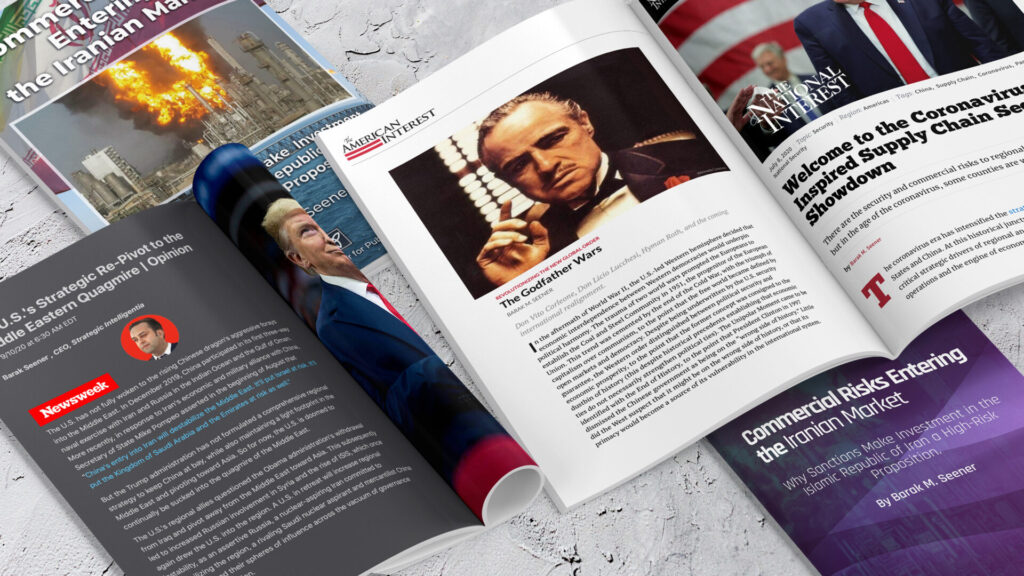We’ve been hearing and doing quite a bit of crisis management over the course of 2020. Very few companies were prepared to deal with the COVID-19 pandemic in both agile and adaptable ways, even fewer were prepared to deal with a crisis of any kind. So what is crisis management and why are so few companies so ill prepared for one?
By definition crisis management is, “…the process by which an organization deals with a disruptive and unexpected event that threatens to harm the organization or its stakeholders.” The study of crisis management originated with large-scale industrial and environmental disasters in the 1980s and according to Wikipedia, “it is considered to be the most important process in public relations.” The three elements common to all crises are: 1) a threat to the organization, 2) the element of surprise and, 3) a short decision time. But really there is also a fourth element – the need for change. S.J. Venetter notes in Risk Communication in a High Reliability Organization: APHIS PPQ’s Inclusion of Risk in Decision Making, that “crisis is a process of transformation where the old system can no longer be maintained.” If change is not needed, then the crisis can be easily defined as a failure or incident but it’s incredibly important to know the difference and how to deal with both in a meaningful way to mitigate future occurrences. In the throes of a crisis, many companies are not looking at long-term repercussions but merely putting out the current fire in front of them, often leading to a more disastrous outcome and risk of repetitive behavior down the road, which is why it is so important to view a crisis proactively and well before the advent of an event.
Today, many companies view public relations as just a broadcaster of good news and events to keep them in the public eye – but it should be much more multi-layered than that. Public relations should be firmly married to the crisis management plan to create a bubble of protection around the company with each public touch or announcement, to help mitigate damage in the event of a crisis. It’s about building a solid character (and standing behind it) and legacy long before crisis, as there is nothing so distasteful as a company in trouble suddenly donating to a ‘good cause’ to show how ‘upstanding’ they are. It’s tacky, distasteful and woefully obvious to the public and often exacerbates the issue rather than resolve it. Beyond public relations and public perceptions, companies should also be structured to adapt to change and shifting times and nowhere was that more apparent than in 2020 where a global pandemic forced change, shift and adaptability – those that didn’t or couldn’t, haven’t survived the year. In a time where technological obsoletism happens almost the second tech is released, it’s difficult for companies to begin to understand where to start on creating new adaptive and responsive structures and digital transformations, and more importantly, where crisis management fits into that process.
Having worked with so many clients over the past year, struggling with the COVID crisis and all that it brought with it in the form of collateral damage, we realized that flexible thinking requires flexible and immediate response solutions. We did a little experimental thinking ourselves and created a ‘portable crisis management operations center’ with one of our partner companies. Essentially, it means that as a company in crisis, our teams deploy to your doorstep and create a rapid reaction crisis and intelligence command center to harvest the latest information, data and news, create strategies and responses and control the message and narrative from the outset. It creates absolute knowledge and control in real-time and brings with it the expertise of our corporate intelligence, research, public relations and strategy teams right to your doorstep – guiding C-Suite executives and their stakeholders throughout the entire process. C-suite executives need to have an experienced support team. Often they can be brilliant leaders within their industry but often completely inexperienced in terms of dealing with crisis. As much as we like to believe these leaders of industry can tackle everything, they don’t have all the answers, and is why you need to have a team that specializes in this field on speed dial – but whom you’ve also called in before to establish your plan and response – who know your company, its culture and the tone of your response. This alleviates knee-jerk reactions and panic and allows companies to deal with issues in a holistic manner that addresses the need to make decisions in a short period of time but with all the facts and people around you that are thinking about both immediate and long term effects – giving your company the best chance of coming out the other side relatively unscathed. It also gives C-Suite executives a support team that they can rely and lean on – helping them make the best decisions from a position of knowledge and experience rather than panic and fear. Panic and fear do not make for good bedfellows, decisions or statements.
A perfect example of having a panicked and inexperienced team on the ground is BP CEO Tony Hayward during the 2010 Gulf of Mexico oil spill where he stated to the press pool, “We’re sorry for the massive disruption it’s caused their lives. There’s no one who wants this over more than I do. I would like my life back.” The perceived tone deaf comment of, ‘I want my life back’ after the livelihoods of thousands and environment had been destroyed, created such a backlash globally that he was replaced shortly thereafter by Bob Dudley, despite numerous apologies after the fact. Being caught out in a boat race near the Isle of Wight in his multi-million dollar yacht shortly after the comments probably didn’t help either… which is why it is important that all behavior during a crisis, both in and out of the boardroom is controlled – perception is everything. While his comments were not meant in malice or ill intent, the repercussion were incredibly damaging. One misstep can create a long lasting ripple effect. Hayward’s team were unprepared, he was exhausted after dealing with the crisis in Gulf of Mexico for 3-months and it led to a misstep because he had little support and a team to lean on that knew how to deal with such large-scale crisis – very few PR companies that deal in the commercial corporate world are, hence the need for specialist teams that can come in and understand the dynamics, geo-political ramifications and the need to adapt quickly in conjunction with tangible actions and the ability to relay those actions and messages every minute of every day throughout the event. Today, that comment is now widely used in public relations training as a textbook example of what not to do – not the legacy recognition that Hayward nor BP were looking for.

Beyond reputation, crisis doesn’t just affect the company but the lives of the people that orbit around that company – Shell in Nigeria is a prime example. According to an investigation by the oil industry watchdog Platform and a coalition of NGO’s in 2011, Shell fueled armed conflict in Nigeria by paying hundreds of thousands of dollars to feuding militant groups. The oil giant was implicated in a decade of human rights abuses in the Niger delta, the study says, claiming that its routine payments exacerbated local violence, in one case leading to the deaths of 60 people and the destruction of an entire town. Platform’s investigation, which includes testimony from Shell’s own managers, also alleges that government forces hired by Shell perpetrated atrocities against local civilians, including unlawful killings and systematic torture. Shell disputed the report, defending its human rights record and questioning the accuracy of the evidence, but has pledged to study the recommendations. Shell has never recovered in the region and continues to have issues with local inhabitants and the government to this day. Inhabitants are in constant conflict with Shell creating damage to pipelines, kidnapping and other forms of violence and destruction and Shell’s efforts to connect with local communities to make amends have been seen as shallow ‘obligatory’ efforts at best and valuing the bottom line over human life, with a view of ‘short term’ pacifications rather than a long-term view of rebuilding and renewal. It has become a daily turmoil of crisis management that is reactive rather than proactive and sustainable that hasn’t netted any positive results in over a decade, and continues to affect the company globally, which simply means that element number four, ‘the need for change’ desperately needs to be employed.
While these are extreme examples, COVID, scandals, MeToo and the rest are equally, if not more damaging. Not having the answers, swift action and substantive explanations lead to more questions and speculation – meaning that you’ve lost control of the narrative and conversation. Speculation leads to all kinds of problems and rumors. Controlling your narrative is the key to winning back public support – and that will mean honesty, sincerity and a hard look at your company and its policies and the need to have these plans in place. Humans are indelibly human and if you have them working for you, you will at some point have a crisis to deal with on some level. How you handle that will mark your company until the end of time.
This is why it is essential and incredibly important to have up to date intel, information, teams with experience and the ability to employ that with effective messaging – turning a crisis into a legacy of love and support – breeding an endowment of sustainability.
Communication is the keystone and very core of crisis management – most will turn to their PR agencies who will give them a templated answer to respond with. While these are useful and quell some issues, people also recognize them for what they are: a generic statement that doesn’t resonate. It’s important to have substance behind those statements and for that, you need a plan and constant data as to the state of the situation. This is why it’s critical to have these plans and messages done BEFORE the advent of a crisis. That way the messaging and crisis management plans can be tested and engrained. Timing is also incredibly important. In today’s instant information era, not having a response out in minutes or hours on the right platforms can be just as damaging as not responding at all. Waiting days or a week to publish a response makes the company look unprepared, bumbling or like they simply don’t care. Perception and getting the right messaging out into the public eye as quickly as possible is paramount. Companies should be proactive – not reactive. It can make or break a brand.
PR companies often deal with simple PR and publicity and are often not prepared for a crisis situation – where opinions prevail, not data and messaging. Many companies turn to law firms who farm this out to crisis management companies that have been around since the 70s and don’t have the capacity to keep up with digital technology or understand its reach, retweets and trolls. They are simply antiquated, slow and outdated in today’s digital world and hugely overpriced with no guarantee of success or shifting public opinion.
The world has changed, and so to must the tactics and teams that companies turn to in today’s ever shifting and unstable world. Time, crisis and news will march on but will your company? And how will it be remembered? It’s worth considering how much that means to you.














